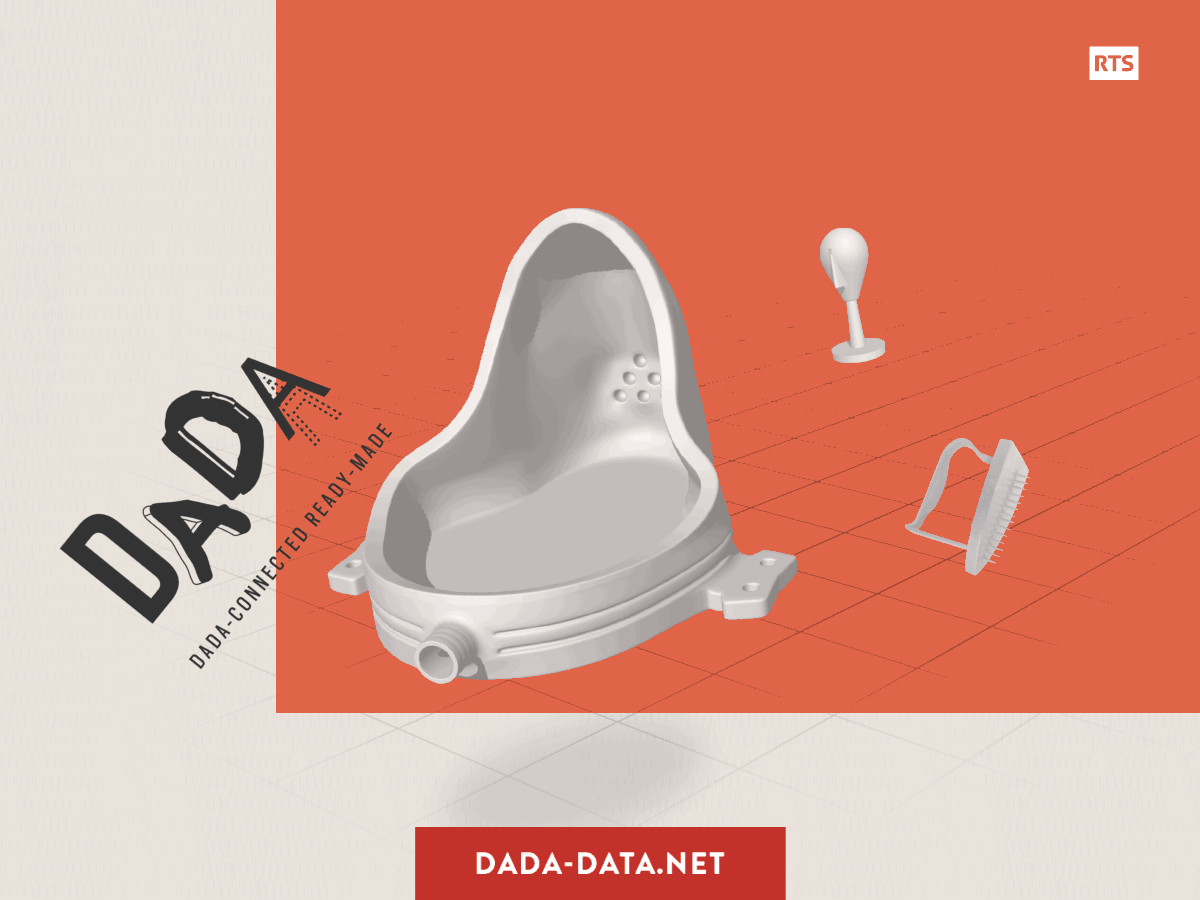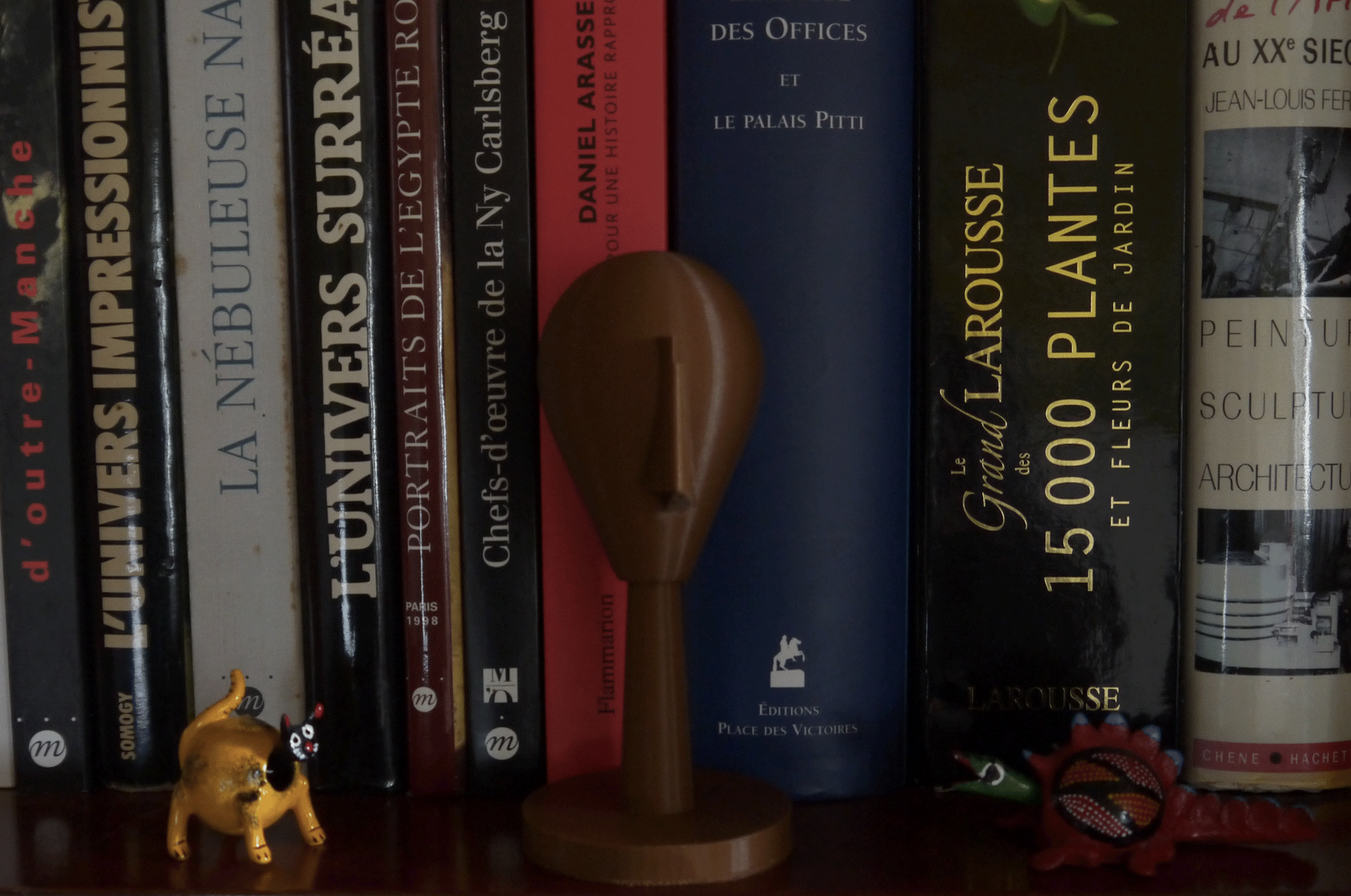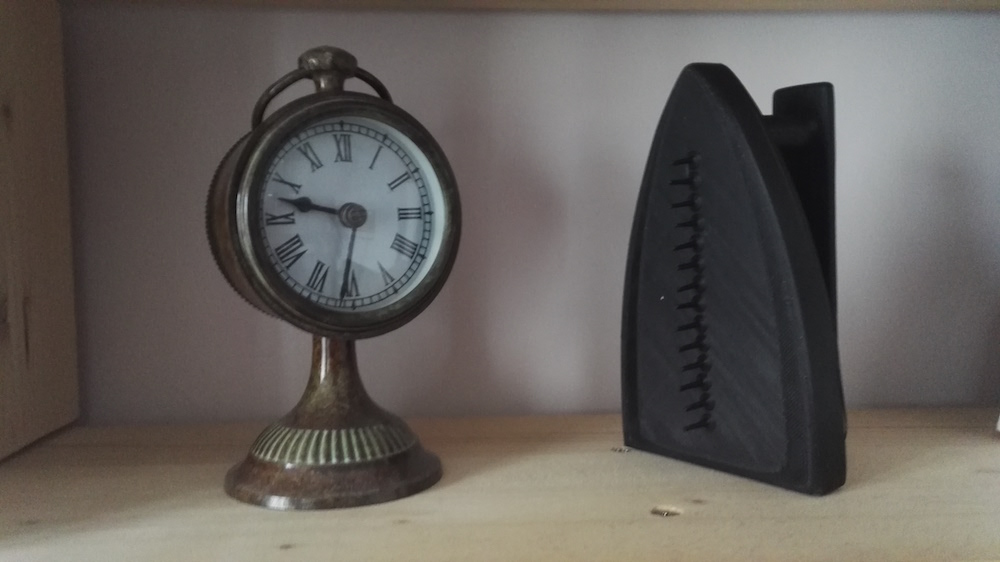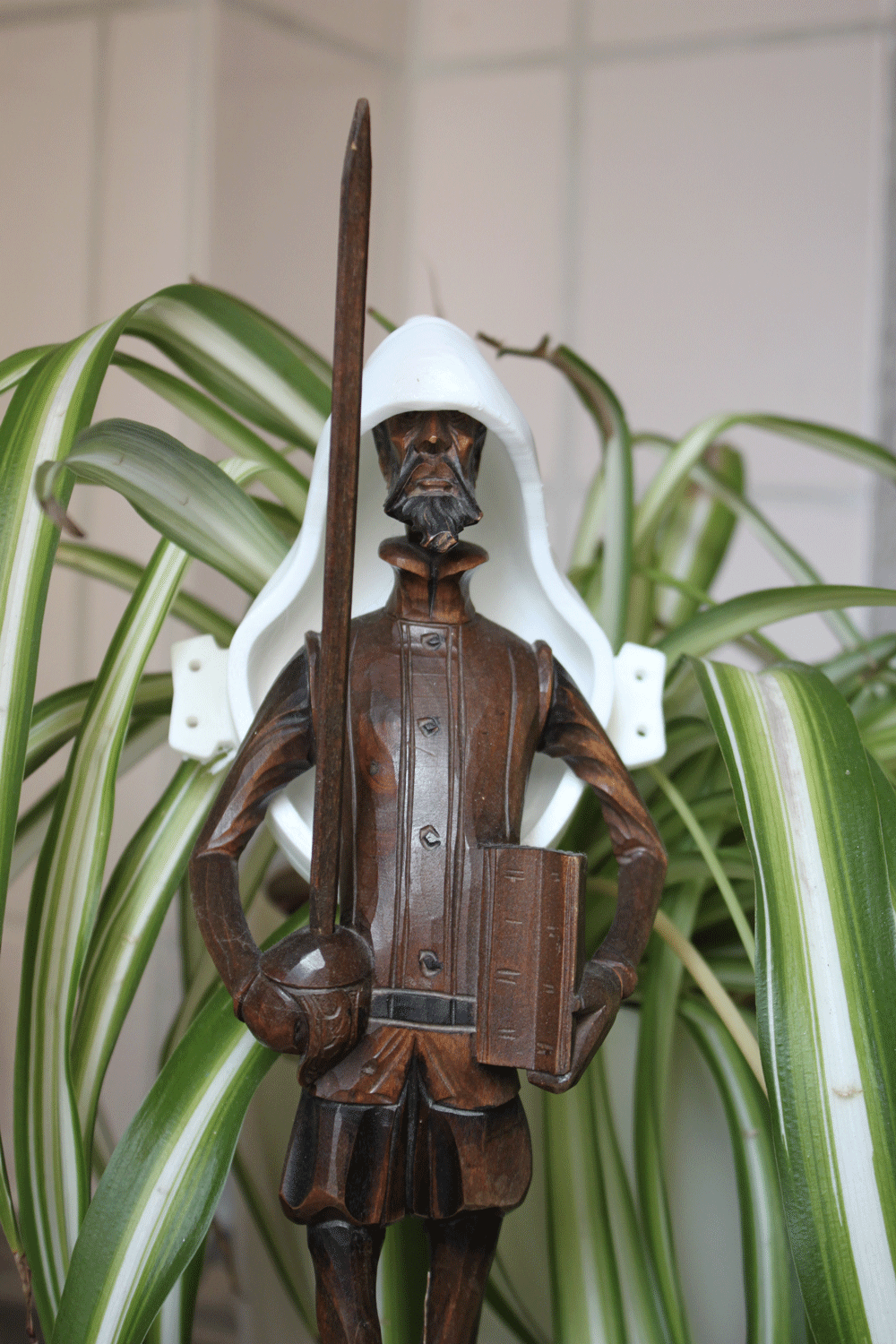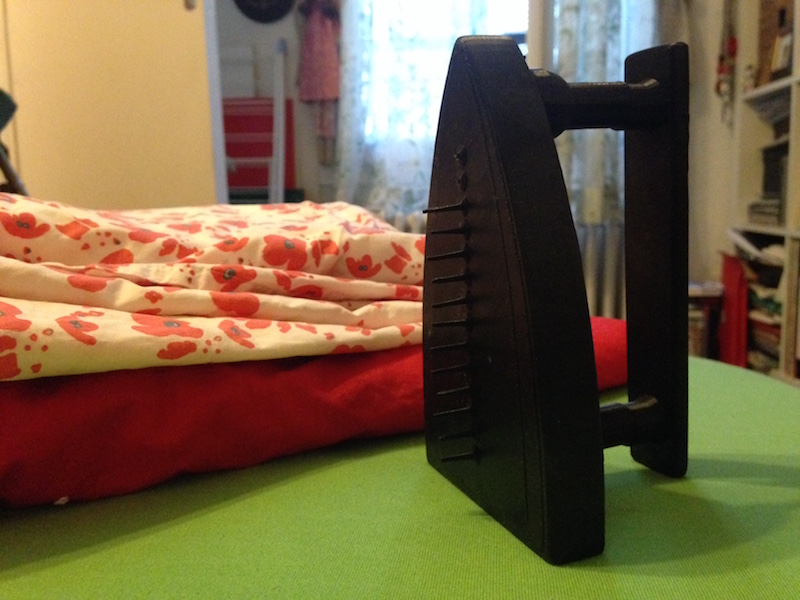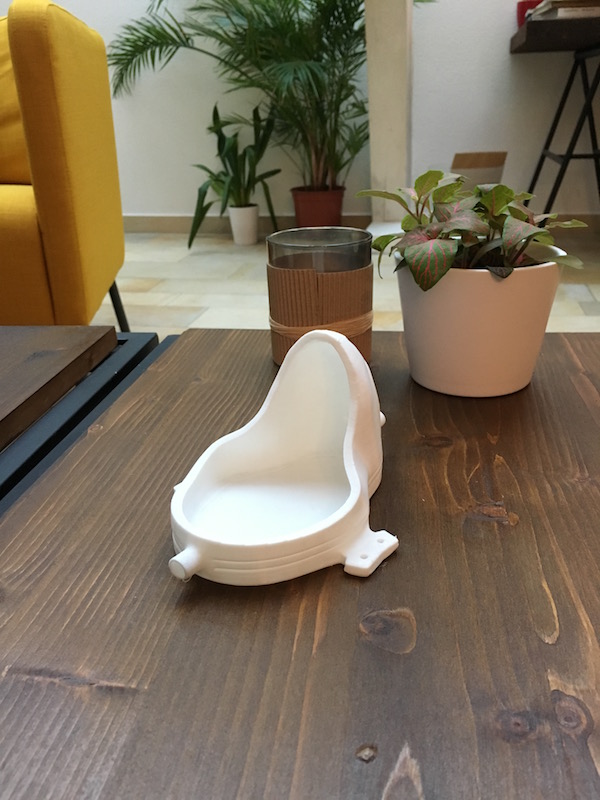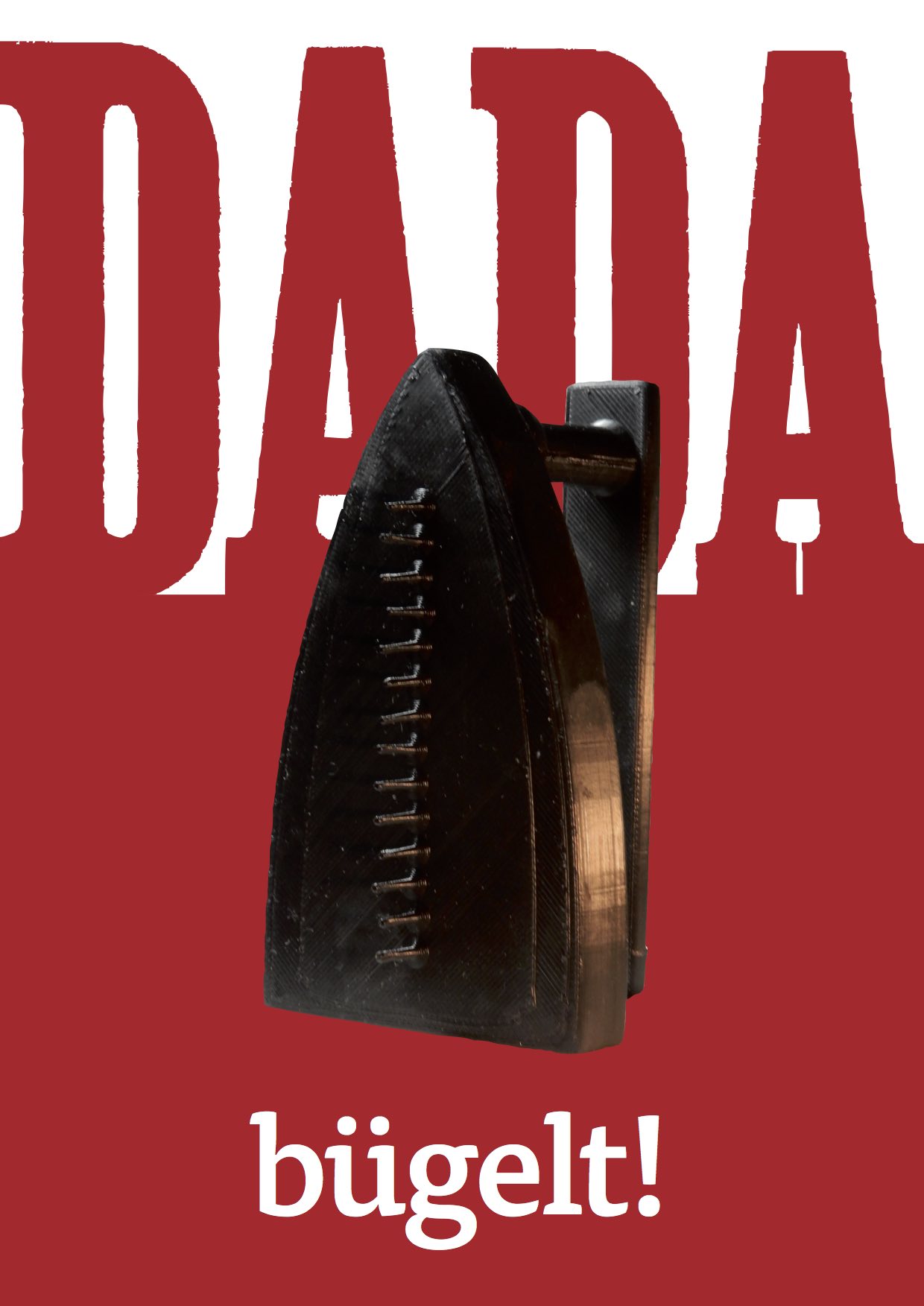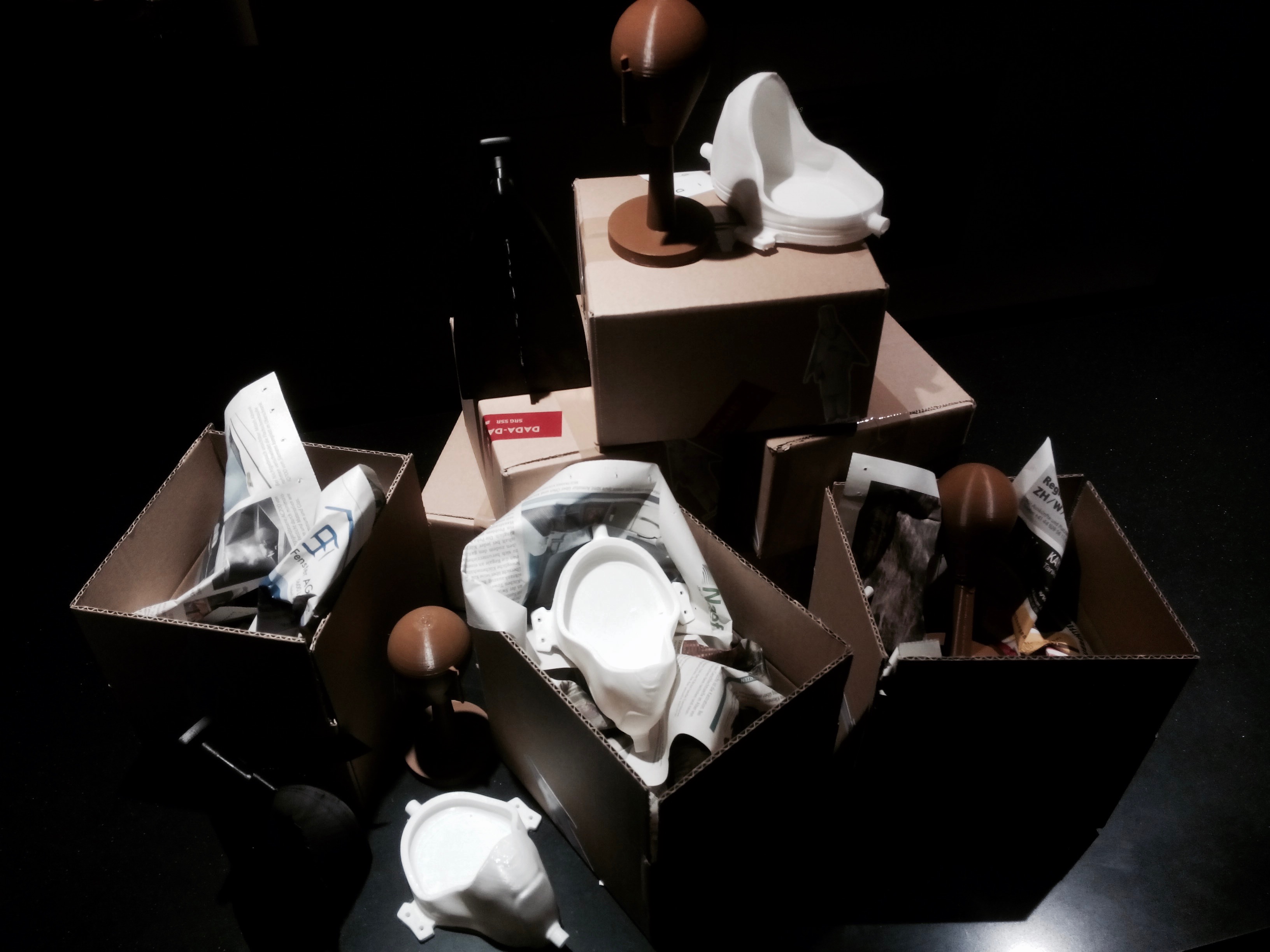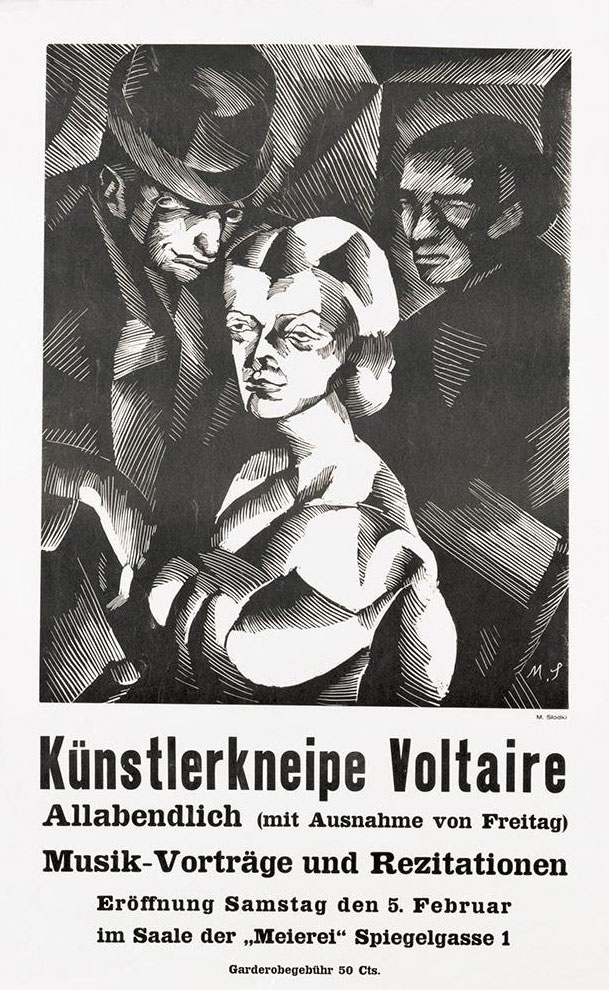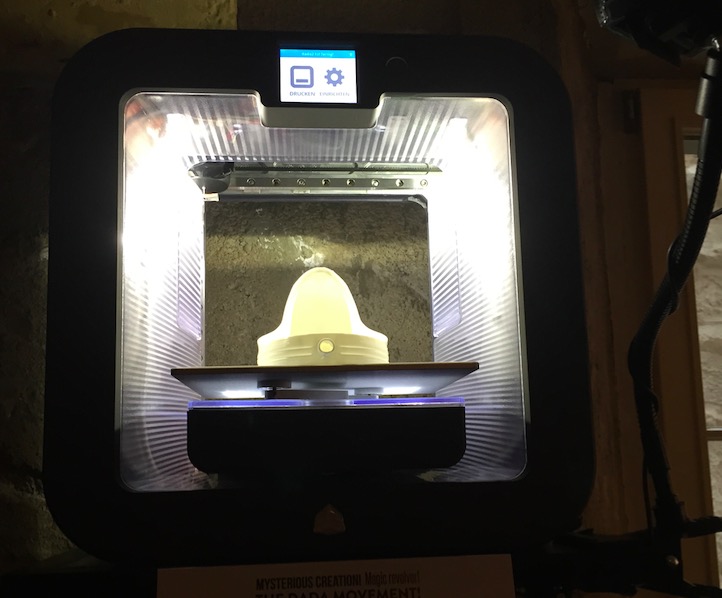
Readymades for all! For one month, from February 5, 2016 to March 4, 2016 DADA-DATA had the machines working full-out. For hours at a time, three machines – three printers – churned out 3-D data objects live at the Cabaret Voltaire in Zurich, birthplace of the Dada movement. Showcased in the Cabaret window, Printer No. 1 turned out Duchamp’s Fountain. In the Café-Bar, it was Sophie Taeuber’s Dada Head. And in the historic main room of the Cabaret: The Gift by Man Ray.
Every day, more than one hundred brave souls sent us their email addresses in the hope of receiving these objects, made one slow and loving layer at a time on the sidelines of DADA’s centennial.
DADA hopefuls participated from all over, including Austria, Canada, Columbia, Croatia, Denmark, England, France, Germany, India, Israel, Italy, Mexico, Morocco, the Netherlands, Portugal, Switzerland, and the United States.
The objects have since been shipped around the world to begin their new lives. See the photos below, sent to us by the DADA Winners!
Because everything was there:
Art is a scam and DADA is its gravedigger!
Art is dead, long live DADA!
Because everything is here :
Industry is a dirty business and 3D its little darling.
The old tools are dead and art is reborn!
